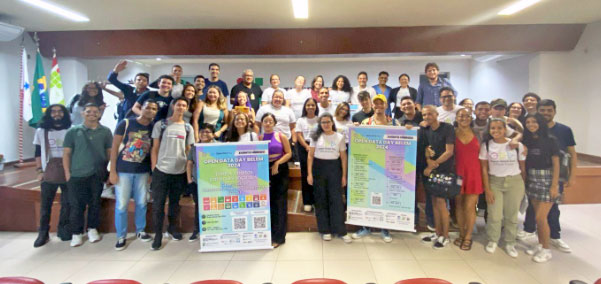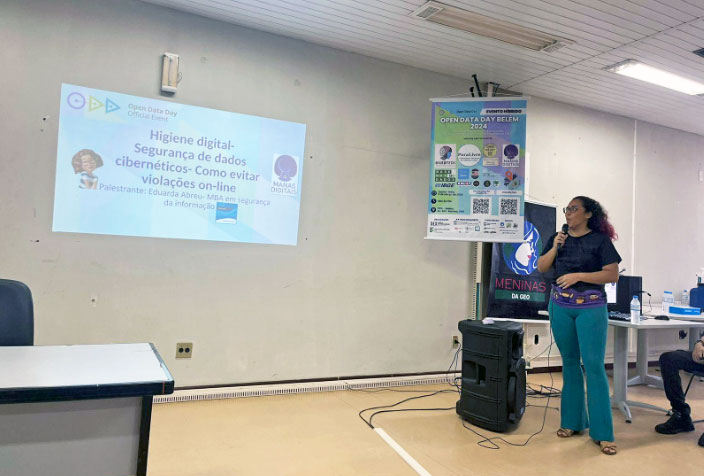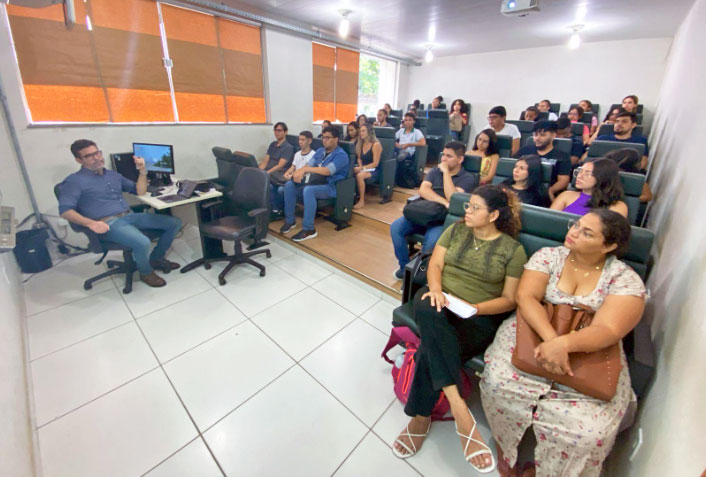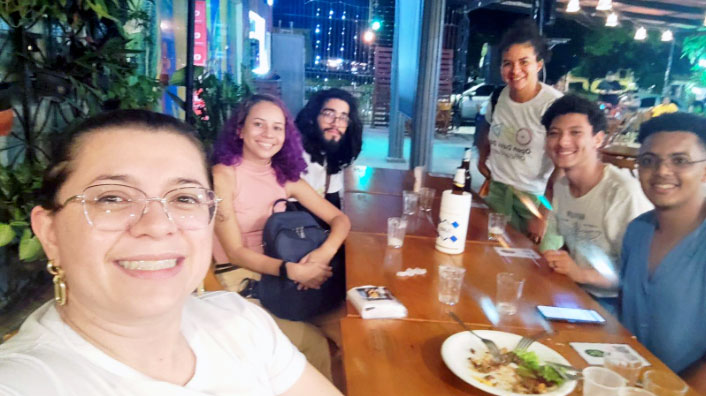In 2024, Brazil was honoured with the support of an Open Data Day mini-grant to host the event in the city of Belém, Pará, in the heart of the Brazilian Amazon, organised by the group Meninas da Geo.
Meninas da Geo, led by myself, a professor at the IFPA Belém campus, focuses on developing actions to include girls and women in STEM fields using geotechnologies. Over the last 5 years, we have been actively promoting open knowledge and software use, as well as geospatial data, promoting open science and collaborative mapping.

To celebrate Open Data Day, I had the full support of the DEX Entrepreneurship sector of the IFPA Belém campus, who allowed me to use their facilities for a diverse programme. This included thematic panels with three data experts, two roundtables with three presentations each, five face-to-face and online workshops, and a major mapathon to update geo-referenced data for Belém.
The theme of the event was to discuss open data for advancing the Sustainable Development Goals (SDGs) in the Amazon, with a particular focus on SDG 5, which aims to empower women through increased use of basic technologies. The discussions emphasised the use of open data for innovation and entrepreneurship, in line with SDG 11.
Special attention was given to how open data can support projects and actions to be presented at COP30 in Belém in 2025, allowing for greater involvement of local civil society. The opening of the event highlighted the importance of data quality and availability for positive research outcomes in Belém, providing a quantitative and qualitative diagnosis of the SDG indicators for the COP host city. The presence of the executive secretary of the Municipal Forum on Climate Change, Marinor Brito, bridged the topics discussed with public policies to achieve the SDGs.

In the afternoon, after lunch, a significant Mapathon of Belém took place, involving participants both in person and online. The event was recorded and made available on the Meninas da Geo YouTube channel.

Numerous institutions contributed to the event and strengthened its celebration, including the Open Knowledge Brazil Civic Innovation Ambassador Network, Youthmappers Brazil, OpenStreetMap Brazil, and others.
There was also an informal ‘Beers with Data’ gathering at the Boteco da Mata Belém, where participants were able to network and continue discussions that couldn’t be completed during the morning sessions.

The event offered online registration through its website, with a limited capacity of 160 participants. A total of 83 participants were accredited in person, along with 50 online participants, 15 speakers and 15 volunteer organisers.








